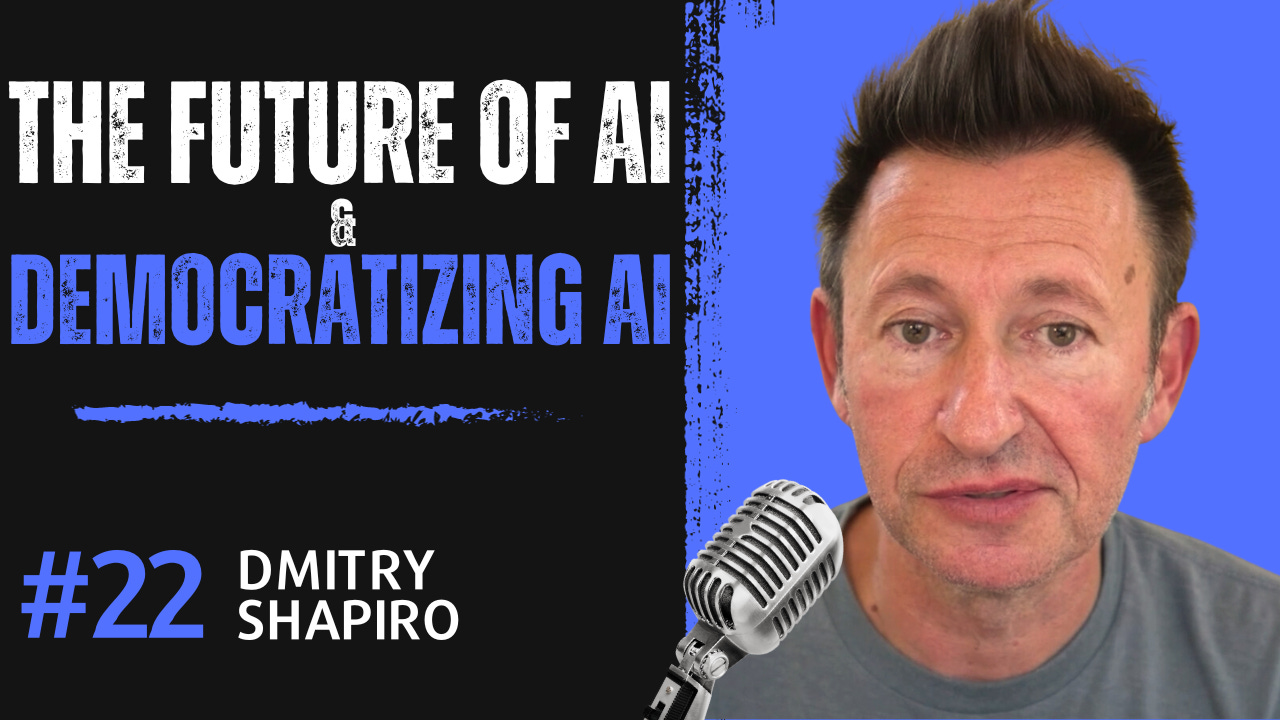Good morning fellow AI enthusiast! This week's iteration is about the future of AI in a new episode of the What's AI podcast with Dmitry Shapiro, the visionary behind MindStudio, and talked about the democratization of AI, technological insights, the future of AI, the intersection of human creativity and artificial intelligence and more.
p.s. If you are building something based on AI to fix a problem or are leveraging AI in any way for your current occupation and would be interested in participating in my podcast, please reach out!
I want to have cool discussions with both builders and users of AI!
Now, let's dive into this week's newsletter, starting with a fantastic online education platform I totally recommend and with whom I am pleased to collaborate with on this iteration...
1️⃣ Online AI Developer Boot Camp (sponsor)
Interested in learning how to develop and leverage artificial intelligence? Become a certified entry-level AI Developer with The Tech Academy’s self-paced coding boot camp, designed for absolute beginners (no past tech experience is required).
This online training program covers a comprehensive range of key AI skills and tools (machine learning, neural networks, R programming, Python, APIs, etc.), and equips you to become a full-stack software developer proficient in multiple programming languages.
Discover more and start your journey in AI today!
2️⃣ Dmitry Shapiro on AI's Future & Democratizing AI — Insights from a ex-Google & MySpace Music CTO
This is an interview with Dmitry Shapiro, previously working at Google and CTO of MySpace Music. Now, Dmitry is building something super ambitious with the goal of democratizing artificial intelligence.
We talk about his platform, YouAI and Mindstudio, but also give super applicable tips to build better AI apps, such as the model selection, prompting, using RAG, and more.
We also talk a lot about the user perspective, democratizing AI, and the future of AI. Dmitry also has another goal of indexing the minds of everyone. And I for sure talked about that in this episode.
This episode is for everyone. Builders or users. I tried to orient the discussion towards applicable tips but also to make us think about the future of AI and its potential. I hope you enjoy it!
Follow the podcast on Spotify, listen on Apple Podcasts, or watch on YouTube:
By the way, if you are looking for more content, I found this great list of the top 100 free books in AI, thanks to another article of the top AI youtubers to follow, which I found to my surprise to be a part of :D
3️⃣ AI Ethics with Auxane
Decoding the Ethics of Emotion Recognition Technology: Sentiment Analysis Edition
Hey there, Fellow AI Enthusiasts!
Welcome to our exciting journey into the world of Natural Language Processing (NLP) Sentiment Analysis for Emotion Recognition. Brace yourself for a quick exploration of this technology and the ethical considerations that (as always) come along with it. NLP Sentiment Analysis is like a superpower that helps us understand and classify emotions expressed in text. It opens doors to a wide range of applications, from customer service, to perception of new regulations.
One crucial ethical consideration is, just like any other emotion recognition technology, accuracy! Picture this: an algorithm misinterpreting a positive comment as negative just because of sarcasm or colloquial language. That would lead to confusion and false judgments. This could happen based on idioms you use with your friends or community; for example, instead of saying “it was awesome”, and irish might say “it was good craic”. This might be misunderstood by the AI.
Emojis, on the other hand, those cute little icons we all love, add another layer of complexity. They have become a fascinating way for people to express their emotions in text. But here's the catch: emojis can have different meanings depending on the context and cultural interpretation. A smiling face emoji could convey happiness or be used sarcastically to mean the opposite.
Now, let's shift gears and explore some ethical opportunities. In the realm of customer feedback analysis, sentiment analysis is a game-changer. It helps businesses promptly identify and address customer concerns. By analyzing emotions expressed in reviews or social media posts, companies and governments can gain valuable insights into customer satisfaction and make improvements where needed.
As we navigate this exciting realm, let's keep ethical considerations at the forefront. Accuracy, diversity, and fairness are the pillars of responsible use of this remarkable technology. Read more here!
If you have any questions or thoughts, don't hesitate to reach out!
Until next time,
Auxane Boch (TUM IEAI research associate, freelancer)
And that's it for this iteration! I'm incredibly grateful that the What's AI newsletter is now read by over 13,000+ incredible human beings and counting. Share this iteration with a friend if you learned something new!
Looking for more cool AI stuff? 👇
Looking for AI news, code, learning resources, papers, memes, and more? Follow our newsletter at Towards AI, which is going out weekly!
Looking for other AI enthusiasts? Join my Discord community: Learn AI Together!
If you need more content to go through your week, check out the podcast!
Please reach out with any questions or details on sponsorships, or visit my Passionfroot profile to see the sponsorship offers.
Thank you for reading, and we wish you a fantastic week! Be sure to have enough rest and sleep!
Louis






